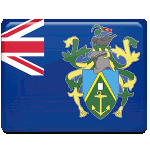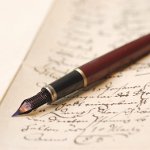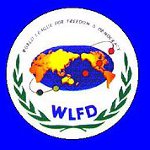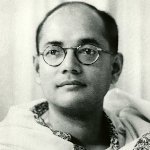Holidays Calendar for January 23, 2018
January 23 is Bounty Day in the Pitcairn Islands. This day commemorates the anniversary of the mutiny on HMS Bounty in 1790.
If you’re a fan of British cuisine, you should celebrate International Sticky Toffee Pudding Day. Observed annually on January 23, this holiday was created in honor of an English dessert that is also popular in Australia and New Zealand.
Russian programmers officially celebrate their professional holiday on the 256th day of the year, which falls on September 13 in common years and on September 12 in leap years. However, Russia also has at least two unofficial Programmers’ Days, celebrated on January 23 and on April 22.
National Security Technician Day is celebrated annually on January 23. It was created to honor skilled professionals whose hard work and dedication are essential to the delivery and function of security technologies.
January 23 is National Handwriting Day that was launched by Writing Instrument Manufacturers Association (WIMA). This observance was created to remind people about the importance of handwriting in the era when e-mails have replaced handwritten letters.
January 23 is celebrated as World Freedom Day in Taiwan. This memorial day marks the return of Taiwanese POWs after the end of the Korean War. The celebration is coordinated by the World League for Freedom and Democracy.
Netaji Subhas Chandra Bose Jayanti is an official holiday celebrated in the Indian states of Assam, Odisha, Tripura, and West Bengal. It commemorates the birth anniversary of a prominent Indian nationalist, who was admittedly a controversial figure, but is still respected in his home region of Bengal.
The First Philippine Republic Day (Araw ng Unang Republika ng Pilipinas) is observed in the Philippines on January 23 every year. It commemorates the establishment of the short-lived First Philippine Republic in 1899.
January 23 is a great day for baking a pie. Chose sweet pie or pie with meat to celebrate National Pie Day.
Have a slice of rhubarb pie on January 23 to celebrate National Rhubarb Pie Day. It celebrates a delicious pie that does not receive all the credit it deserves.
Measure Your Feet Day, sometimes called National Measure Your Feet Day, is celebrated annually on January 23. Although it may seem silly, the holiday’s goal is important: to remind people that wearing improperly fitted shoes can have very bad consequences for your health.
Festivals for January 23, 2018
- Carnival of Ovar in Ovar, Portugal
- International Theatre Festival of Kerala in Thrissur, India
- Slamdance Film Festival in Park City, USA
- Montreal International Auto Show in Montreal, Canada
- Berlin International Green Week in Berlin, Germany
- Sundance Film Festival in Park CIty, USA
- Celtic Connections in Glasgow, United Kingdom
- Carnival of Santa Cruz de Tenerife in Santa Cruz de Tenerife, Spain
- Massafra Carnival in Massafra, Italy
- Rijeka Carnival in Rijeka, Croatia
- Manfredonia Carnival in Manfredonia, Italy
- Patras Carnival in Patras, Greece
- M1 Singapore Fringe Festival in Singapore, Singapore
- Niagara Icewine Festival in Niagara Falls, Canada
- Carnival of Limoux in Limoux, France
This Day in History
- 2021 Died: Larry King, American television and radio host, whose awards included two Peabodys, an Emmy, and ten Cable ACE Awards.
- 2012 The Bani Walid uprising started in Libya. A group of Gaddafi loyalists took control of part of the town of Bani Walid and flew the green flag of the Libyan Arab Jamahiriya.
- 2005 Died: Johnny Carson, American comedian, actor, television host, producer, writer, and musician known as host of The Tonight Show Starring Johnny Carson.
- 2003 Radio communications were lost with Pioneer 10, an American space probe that completed the first mission to the planet Jupiter. Its radio transmitter lost electric power.
- 2002 Israeli American reporter Daniel Pearl was kidnapped by a Pakistani militant group in Karachi. Nine days later, he was decapitated.
- 1992 Died: Freddie Bartholomew, English-American child actor who was very popular in 1930s. His most famous starring roles are in Little Lord Fauntleroy and Captains Courageous.
- 1989 Died: Salvador Dalí, Spanish Catalan surrealist painter. His most famous paintings include The Persistence of Memory, Swans Reflecting Elephants, and others.
- 1986 The first members of the Rock and Roll Hall of Fame were inducted. The first group of inductees included Elvis Presley, Ray Charles, James Brown, and others.
- 1981 Died: Samuel Barber, American composer of choral, opera, orchestral, and piano music. One of his most well known pieces is "Adagio for Strings".
- 1974 Born: Tiffani Thiessen, American actress known for her roles as Valerie Malone on Beverly Hills, 90210 and Elizabeth Burke on White Collar.
- 1968 North Korean forces boarded and captured the USS Pueblo, an American electronic intelligence and signals intelligence ship attached to Navy intelligence.
- 1964 Born: Mariska Hargitay, American actress, philanthropist, producer, and director. She has played Olivia Benson on Law & Order: Special Victims Unit since 1999, which is the longest-running character in American primetime drama in history.
- 1962 Born: David Arnold, British film composer whose credits include scoring five James Bond films and the television series Little Britain, Sherlock, and Good Omens.
- 1951 Born: Chesley "Sully" Sullenberger, American retired aviator, diplomat and aviation safety expert. He is best known for his actions as captain of US Airways Flight 1549, which he landed on the Hudson River on January 15, 2009.
- 1946 Born: Boris Berezovsky, Russian business oligarch, government official, and mathematician. He was an opponent of Vladimir Putin.
- 1944 Died: Edvard Munch, Norwegian painter and and graphic artist. One of his well-known words is The Scream, which exists in four versions.
- 1944 Born: Rutger Hauer, Dutch actor, writer, and environmentalist. His film credits include Blade Runner, Escape from Sobibor, Ladyhawke, and many other films.
- 1931 Died: Anna Pavlova, Russian prima ballerina most recognized for the creation of the role The Dying Swan, choreographed by Mikhail Fokine.
- 1930 Born: Derek Walcott, Saint Lucian poet, playwright, and professor. He was awarded the Nobel Prize in Literature in 1992 for his poetic works.
- 1921 Died: Mykola Leontovych, Ukrainian composer and choral conductor. He is recognized for composing "Schedryk", better known in the West as "Carol of the Bells".
- 1912 The International Opium Convention was signed at The Hague during the First International Opium Conference. It became the first international drug control treaty.
- 1907 Born: Hideki Yukawa, Japanese theoretical physicist, the first Japanese to win the Nobel Prize (he became a Nobel laureate in 1949).
- 1883 Died: Gustave Doré, French artist, illustrator, sculptor, and printmaker. He was a very prolific artist who worked primarily with wood engraving.
- 1881 Born: Luisa Casati, eccentric Italian heiress, muse, and patroness of the arts in early 20th-century Europe.
- 1870 The Marias Massacre (also known as the Piegan Massacre or the Baker Massacre) took place. About 200 friendly Native Americans were killed by the US Army during the Indian Wars.
- 1866 Died: Thomas Love Peacock, English poet, novelist, and official of the East India Company who was a close friend of Percy Bysshe Shelley.
- 1840 Born: Ernst Abbe, German physicist, optical scientist, entrepreneur, and social reformer. He laid the foundation of modern optics together with C. Zeiss and O. Schott.
- 1837 Died: John Field, Irish composer, pianist, and teacher best known as the creator of the nocturne, a musical composition inspired by the night.
- 1832 Born: Édouard Manet, French painter who is considered an important figure in the transition from Realism to Impressionism. His famous works include Olympia, The Fifer, and others.
- 1793 The Second Partition of Poland took place. The Polish-Lithuanian Commonwealth was divided between the Kingdom of Prussia and the Russian Empire.
- 1789 Georgetown University was established in Georgetown, Maryland, USA. It became the first Jesuit and Catholic university in the United States.
- 1783 Born: Stendhal (pen name of Marie-Henri Beyle), French writer. His most famous novels are The Red and The Black and Charterhouse of Parma.
- 1556 The deadliest earthquake in history occurred in Shaanxi, China. It killed approximately 830,000 people and destroyed a 520-mile-wide area.










